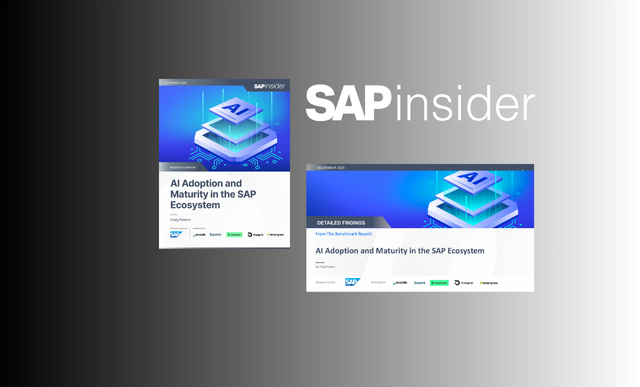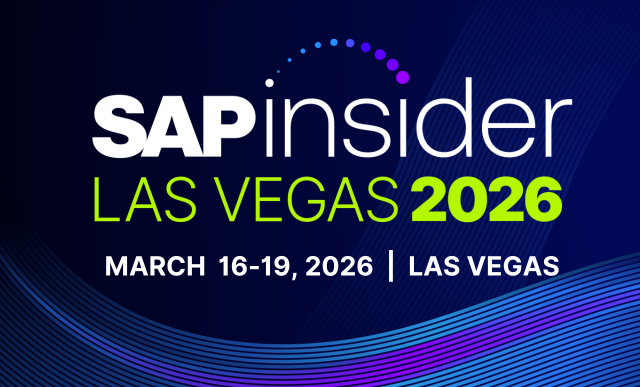Understanding Generative AI For Business Use Cases
Meet the Authors
Artificial Intelligence (AI) is one of the hottest topics in the technology industry, and its momentum will likely continue to increase in 2025. With all of the discussion around AI and Generative AI, organizations may miss out on the answer to their biggest question – how does this benefit me and my company?
SAP organizations are uniquely positioned to leverage AI, as it has use cases throughout finance, GRC, supply chain, data management, and many other key focus areas for enterprises. Yet many SAP organizations have admitted that they do not understand AI as well as they would like, which can hold back any potential deployments. This can cause them to fall behind their competitors who have more robust AI usage.
In fact, SAPinsider’s recent AI: State of Adoption 2024 benchmark research report found that 45% of SAP organizations said that a lack of relevant resources/skills within the organization were holding them back from implementing AI strategies and technologies. Additionally, 23% said they were not sure which technologies to use and 22% added that they struggled with a lack of executive buy-in at their company, making these some of the largest concerns.
Explore related questions
Understanding the Levels of AI
To help companies better understand AI and its capabilities, the SAP transformation experts at Titan Consulting provided a detailed breakdown of the different levels of AI and how they can be used to bolster the capabilities of SAP organizations:
- Artificial Intelligence – Baseline artificial intelligence comes from an intelligent machine that performs tasks that would ordinarily require a human’s intelligence to complete.
- Machine Learning – Machine Learning improves on baseline AI, as it teaches computers to learn and grow over time without being explicitly programmed.
- Deep Learning – Deep Learning is a subset of machine learning in which complex algorithms and neural networks handle complex problems.
- Generative AI – The height of AI complexity is represented by Generative AI. This allows users to autonomously create, synthesize, and innovate. GenAI can generate new data, images, and simulations.
AI Use Cases in SAP
Better understanding the different levels of AI can help companies determine which AI-based solutions are best suited to solve specific business problems.
For instance, baseline AI may be utilized to automate some repetitive tasks like data entry, whereas Machine Learning may be better suited to document extraction and performing predictive inventory management. Further, Generative AI has shown the ability to generate financial insights and bolster decision making, detect fraud, enhance CX, and more.
Organizations should work to understand their own individual needs and which AI solutions should be used to address these gaps. However, most companies lack the internal AI skillsets and knowledge required to effectively deploy these solutions. This is why many leading SAP organizations are seeking out partners like Titan Consulting to learn about the most relevant components of AI and high-level business cases, which are important considerations to make leading up to an AI project. Those who want to learn more can reach out to Titan Consulting here.






